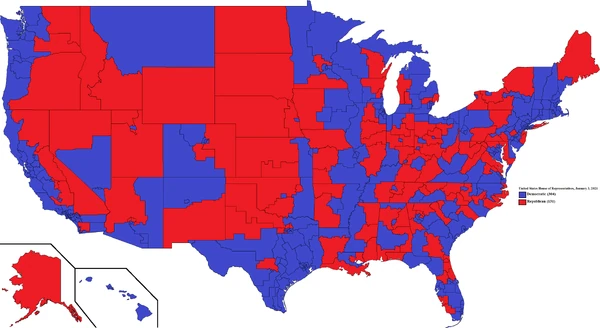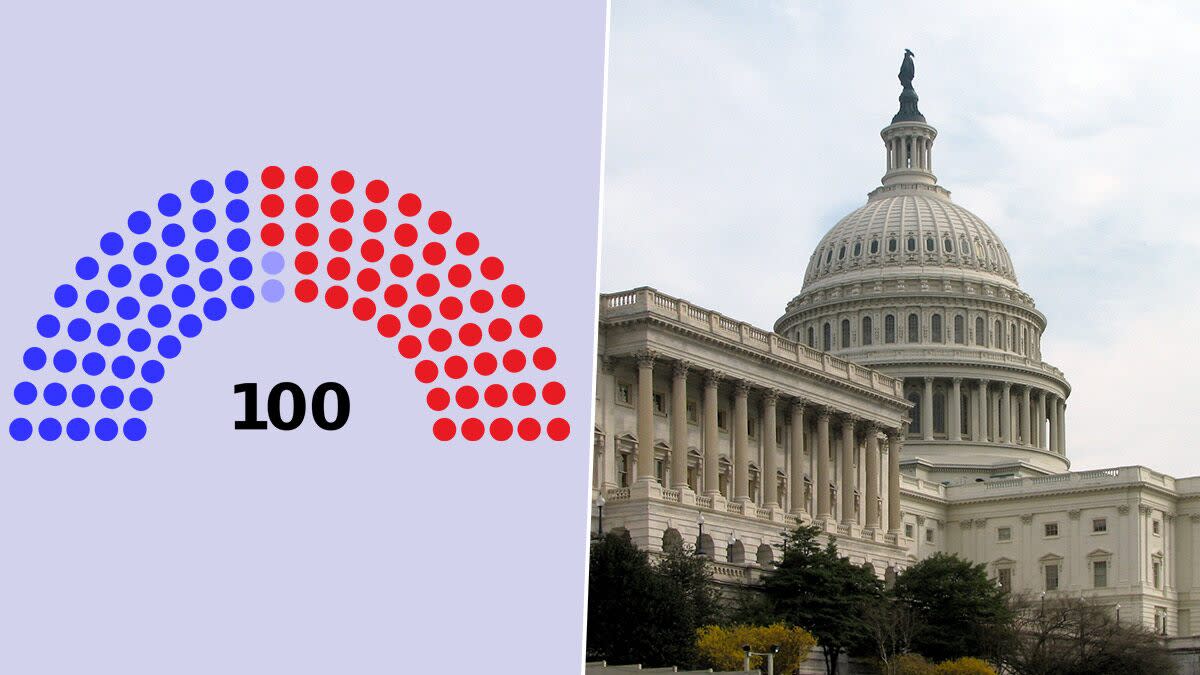Results Us Senate Races 2021
Warnock, 51, and Ossoff, 33, had won special elections earlier in the month that determined control of the Senate. Schumer said in his first speech as majority leader: “We have a lengthy agenda. The 2020–21 United States Senate election in Georgia was held on November 3, 2020 and on January 5, 2021 (as a runoff), to elect the Class II member of the United States Senate to represent the State of Georgia. Democrat Jon Ossoff defeated incumbent Republican Senator David Perdue in the runoff election. The Georgia US Senate races have attracted enormous attention due to the stakes for the first years of the Biden administration and the state’s shift from red to purple. Georgia awaits results of high-stakes US Senate runoff elections Chris Moody 1/6/2021 American Airlines is relocating crews from downtown DC hotels for inauguration week.
RELATED CONTENT
INAUGURATION 2021: THE BIDEN-HARRIS ERA BY THE NUMBERS
U.S. SENATE: WHO VOTED IN GEORGIA’S RUNOFF ELECTIONS?
REPRESENTING US: DEMOGRAPHIC & ECONOMIC DATA FOR CONGRESSIONAL DISTRICTS AND STATES
by APM RESEARCH LAB STAFF Updated Jan. 19, 2021 5:45 p.m. CST
All eyes will be on the inauguration of President Joe Biden and Vice President Kamala Harris—but it is not the only transition of power taking place in DC this week.
Georgia Democrats Jon Ossoff and Raphael Warnock are to be sworn into the U.S. Senate Wednesday afternoon, replacing Republican incumbents David Perdue and Kelly Loeffler. At that moment they will officially tip the balance of power from Republican to Democratic control.

Democrats will control the Senate by virtue of Vice President Harris’ constitutional power to cast tie-breaking votes. The Democratic Caucus will include 50 members, including two Independent Senators, Bernie Sanders of Vermont and Angus King of Maine, who officially affiliate themselves with the Democrats.
Republicans will hold 50 seats, but with Harris casting the tie-breaking vote, they will formally be the minority party, and the powerful Senate Majority Leader position will switch from Mitch McConnell (R-Ken.) to current Minority Leader Chuck Schumer (D-N.Y.).
Ossoff and Warnock narrowly won their seats in Georgia’s hotly contested January 5th runoff elections. The results of their elections were officially certified yesterday by Georgia’s Sectary of State.
Alex Padilla, California’s current Secretary of State and Governor Gavin Newsom’s appointment to replace Kamala Harris, also will be sworn into the Senate on Wednesday. Padilla will become the first Latino senator from California. Warnock will become Georgia’s first Black senator. Ossoff will be the state’s first Jewish senator and, at age 33, the Senate’s first member from the millennial generation. All three will be sworn in by Kamala Harris, the nation’s first female Vice President.
The winding road to Democratic control
Following an anxious four days of waiting after the 2020 general election, nearly all major news networks declared that Joe Biden had exceeded 270 electoral votes and won the presidency. Democrats also retained control of the U.S. House, although their majority has been trimmed back (222 to 211, with two seats yet uncalled and Louisiana’s 5th district now requiring a special election after Republican Congressman-elect Luke Letlow’s death).
But the U.S. Senate still hung in the balance, a tantalizing prize for Democrats dreaming of a trifecta, and a bulwark against a Democratic agenda for Republicans who seek to hold onto some power under the new Biden administration that will be sworn in on Jan. 20, 2021.
Republicans claimed 50 Senate seats after the November election, two more than the 48 seats claimed by the Democratic Caucus at that time. (The Democrats’ tally includes the two Independent Senators, Bernie Sanders of Vermont and Angus King of Maine, who caucus with the Democrats.)
The Senate’s balance of power teetered on the fulcrum of Georgia’s two seats, both of which were decided by the January 5th runoff election. Georgia law requires candidates to be voted in with at least 50% of the votes cast; if a candidate does not reach that threshold the two candidates who received the highest number of votes face one another in a runoff election.
Georgia’s runoff election featured these match-ups:
Incumbent David Perdue (R) versus Jon Ossoff (D).According to Georgia’s Secretary of State, Perdue received 88,000 more votes than Ossoff, but came up just shy of the 50% needed to avoid a runoff. This is in part due to the 115,000 votes that went to Libertarian candidate Shane Hazel who will not appear on the January ballot.
Incumbent Kelly Loeffler (R) versus Raphael Warnock (D). Georgia had a second Senate seat up for election this cycle because of Senator Johnny Isakson’s resignation at the end of 2019 due to health concerns. Georgia Governor Brian Kemp appointed Kelly Loeffler (R) to the seat, making her the incumbent in this special election.
According to the Secretary of State, challenger Raphael Warnock (D) led in the November election with a plurality of about one-third of the vote, while Loeffler received just over one-quarter. However, a second Republican on the ballot, current Georgia congressman Doug Collins, received about one-fifth of the vote. Only the two leading candidates appear on the January ballot.
Although Georgia had long been considered a red state (it hadn’t voted for the Democratic presidential candidate since 1992), this year’s election has revealed there is an emergent plum color in the Peach State. The initial tally indicated President-elect Biden won the state’s 16 electoral votes by less than 13,000 votes, only a fraction of a percentage point out of the nearly 5 million votes cast.

While the outcome had been confirmed after one hand recount (triggered by Georgia state law due to the narrow margin), President Trump asked for another. That machine recount resulted in some votes moved in Trump’s favor, but still showed Joe Biden winning the state by nearly 12,000 votes. On Dec. 7, Georgia’s Republican Secretary of State Brad Raffensperger announced that he would re-certify the election results, affirming Biden’s win.
Four flips for Democrats, one for Republicans
Going into the election, the Democrats held 47 seats in the U.S. Senate while the Republicans held 53.
The Democrats have succeeded in flipping four seats: in Colorado, where former Governor John Hickenlooper easily ousted incumbent Cory Gardner, in Arizona, where former astronaut Mark Kelly (also husband to former Rep. Gabby Giffords) defeated incumbent Martha McSally, and in Georgia, where Raphael Warnock defeated incumbent Kelly Loeffler and Jon Ossoff defeated incumbent David Perdue.
The Republicans have wrested back one previously Democratic seat in Alabama, where one-term incumbent Doug Jones was emphatically denied a second term by Tommy Tuberville, a former college head football coach, most recently at the University of Cincinnati.
Outgoing freshman Sens. Jones (D–Ala.) and Gardner (R–Colo.) were both considered vulnerable, as each was elected with less than 50% of the vote in 2018.
Republican Thom Tillis’s victory over Cal Cunningham (D) in North Carolina—by less than 2 percentage points according to the North Carolina Secretary of State’s latest tally—is one of several close Senate races that were not called until after election night. In addition to the seats from Georgia, close races also include the victories of incumbent senators Gary Peters (D-Michigan) and Susan Collins (R-Maine), which were not called until Nov. 4.
Current Senate Majority Leader Mitch McConnell (R-Ken.) won a seventh term over challenger Amy McGrath. Now that the Georgia runoffs have brought the Senate to an even 50-50 split between those voting with Democrats and those voting with Republicans, the powerful Senate Majority Leader position will go to a Democrat, once Kamala Harris is sworn in as Vice President. Constitutionally, the Vice President provides a tie-breaking vote in the U.S Senate. This sort of vice-presidential tie-breaking is not uncommon: Mike Pence has voted to break ties in the Senate at least 13 times since 2017.
With COVID-19 continuing to decimate Americans’ health and economic security, the new Congress will have their work cut out for them.
Thoughts? Questions?
We want to hear from you! Leave us a message below.
 © Voters line up for the US Senate runoff election, at a polling location in Marietta, Georgia, US [Mi... Voters line up for the US Senate runoff election, at a polling location in Marietta, Georgia, US [Mike Segar/Reuters]
© Voters line up for the US Senate runoff election, at a polling location in Marietta, Georgia, US [Mi... Voters line up for the US Senate runoff election, at a polling location in Marietta, Georgia, US [Mike Segar/Reuters]Polls have officially closed in Georgia, where Republican and Democratic US Senate candidates faced off after running the most expensive and nationally consequential pair of congressional runoff campaigns in state history.
Around one million voters were expected to return to the polls Tuesday to vote in two races pitting Republican Senator Kelly Loeffler against Democrat Raphael Warnock and Republican David Perdue, whose Senate term expired Sunday, against Democrat Jon Ossoff. More than three million had already cast mail-in ballots or voted early in person.
The outcome will determine which party controls the US Senate, and it appears that was on the minds of voters. In preliminary results from The Associated Press’s VoteCast survey, 60 percent of Georgia runoff voters said Senate control was the most important factor in their vote. An additional 34 percent said it was important, but not the most important factor.
Pre-election surveys showed both races to be too close to call, which means the results could take some time to confirm. The winners are expected to be announced as early as Wednesday morning, Brad Raffensperger, Georgia’s secretary of state, told Fox News on Tuesday.
As part of last minute get-out-the-vote efforts, three candidates, Loeffler, Warnock and Ossoff, made public appearances throughout the state Tuesday. Perdue could not campaign in person because he is in quarantine after coming into contact with a campaign staffer who tested positive for the COVID-19 virus.
Us Senate Runoffs
Given the high stakes of the outcome, the runoffs received nationwide attention and hundreds of millions of dollars in combined donations. In the two months since election day in November, approximately $516m was spent on the contests, according to Medium Buying, which tracks advertisement spending.
Party activists on both sides encouraged supporters to vote early and by mail. Of the 7.7 million registered voters in the state, about four million voters are expected in total, shattering the previous state runoff turnout record of 2.1 million. Since the November election, approximately 70,000 new voters have registered, according to an NBC News analysis.
Changing demographics
The competitiveness of the race shows how Georgia, a state dominated by Republicans for decades, has changed during the past few years, said Jessica Taylor, an election analyst for the Cook Political Report.
“You have this massive influx of people who are moving into Georgia, and they are the ones that are changing the demographics and the voting patterns,” Taylor said. “Georgia is where Democrats are going to put a lot of their resources in 2022 as well.”
Democrats have also benefitted from an aggressive statewide voter mobilisation effort that registered some 800,000 new voters before Election Day in November. They are hoping turnout among traditional Democratic voters, especially Black voters, was robust enough to make the difference in these races.
Preliminary results from the AP’s VoteCast survey show that Black voters made up 32 percent of the electorate, up from 29 percent in November.
A Republican victory will largely depend on election day voting, and whether they come out in the numbers the party needs them to make up for early Democratic votes.
“We expected that the early vote was going to privilege Democratic voters in this race. The demographic numbers seem to suggest that that pattern is holding up,” said Andra Gillespie, an associate professor of political science at Emory University in Atlanta. “If Republicans don’t make up the low early voting numbers with election day turnout, that probably does not bode well for David Perdue and Kelly Loeffler.”
In a last-minute plea Tuesday afternoon, Perdue and Loeffler released a joint statement requesting voters to keep urging friends to vote, a sign that they still needed more participation to make up for Democratic early voting.
“We are encouraged by reports of high voter turnout across the state – particularly so in North Georgia, where President Trump rallied Republicans last night,” the statement read. “But make no mistake about it: This is going to a very close election and could come down to the difference of just a few votes in a few precincts across the state.”
The low early turnout among Republican voters pushed the GOP candidates to focus on northern Georgia late in the race, where support for President Donald Trump is high. Trump rallied for the Republican candidates Monday night in Dalton, in Georgia’s far northwest corner, an event that attracted thousands of supporters. Loeffler attended and Perdue addressed the crowd via video while quarantining.
Anecdotal evidence from Tuesday’s voting suggests that early voting may have alleviated crowding at the polls. Georgia election officials throughout the state reported that polls avoided long lines and suffered minimal problems with voting machines.
“Smooth election so far this morning across Georgia,” said Gabriel Sterling, who oversees the state’s voting systems, several hours into voting on Tuesday, Sterling shared voting data showing the average wait time was just one minute long, and the longest wait was only 20 minutes.
“Get out and vote,” Sterling urged. “It’s quick and easy.”
Trump on Tuesday complained on Twitter about alleged voting irregularities in Georgia’s 12th district. Sterling responded quickly to the president, saying that the issue was fixed hours before.
“Sorry you received old intel Mr. President,” Sterling tweeted.
Trump has battled with Georgia’s Republican election officials like Sterling for months about his loss in the state in November, when Joe Biden defeated him by approximately 12,000 votes.
Trump has, without evidence, accused them of botching the election, going as far as pressuring Georgia election officials to “find” him extra votes months later. Trump’s personal grievances and baseless claims of voter fraud have distracted from the Senate race, a worrying sign for Republicans who need these races to hold onto their last sliver of legislative power in Washington.
It seems voters in Tuesday’s runoffs may have been turned off by Trump’s rhetoric. According to preliminary results from the AP’s VoteCast survey, more than half of runoff voters disapprove of the president’s handling of the 2020 election results.
But, the AP reports that Trump’s allegations of widespread fraud have resonated with Republicans: Only 13 percent are confident that the 2020 results were accurate, compared to 84 percent of Democrats.
Regardless of the outcome, the races showed that Georgia will remain a battleground for some time as the state’s population continues to grow and change, experts said.
Prediction Of Georgia Senate Races
“There are still lots of Republicans in Georgia – perhaps even more Republicans than Democrats in the state. But what this means is that Republicans can’t expect to coast to victory,” Gillespie said. “And both parties are going to have to do their utmost to make sure they turn out as much as their base as possible.”